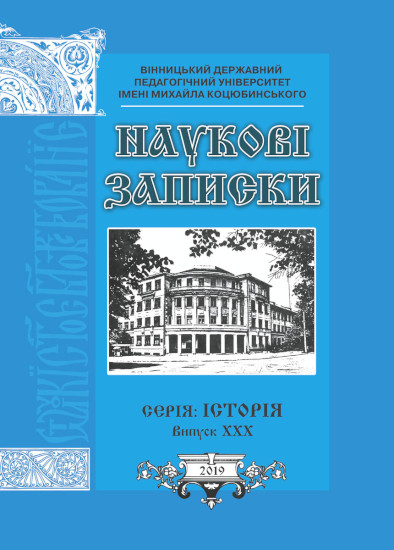Abstract
The article discusses War Diaries kept by Astrid Lindgren, then unknown writer, from September 1, 1939 till December 25, 1945.
The source study has been carried out in terms of reflecting changes in the everyday life of the Swedes during the World War ІІ. The diary's peculiarity is that the author’s entries are accompanied by clippings from the official daily and weekly press, as well as fragments of personal letters of citizens that became known to the author during her work in the Correspondence Verification Department of the National Security Service. By the choice of the estimates and the information selected for recording, one can trace both the personal civic position of the author and public opinion about the war in general. The records of an ordinary housewife make it possible to trace the dynamics of the moods of Swedish citizens, their attitude to power, to the country's neutrality policy, to the culprits of the world war – Nazi Germany and Stalin’s Russia, whom the author defines as equal threats to peace. At the same time, the notes allow us to talk about the dominance of fear of the Soviet occupation and the dictatorship of the Bolsheviks. А.Lindgren thinks a lot about the causes, course, results and consequences of the Soviet-Finnish war of 1939-1940.
Diary entries show how the material conditions of work and life, recreation and leisure of the country as a whole and the Lindgren family notably changed. She writes that her family’s condition has improved, but she has compassion for war victims, crippled Germans and Finns, Americans and British, survivors of the Siege of Leningrad and residents of the occupied Europe. During the war, the world is not limited to the author, but, on the contrary, it expands, empathy is not confined to the family circle, as she reconsiders her own views. A.Lindgren does not identify the state ideology and politics of the warring parties with the public mood in them. According to the text of the diary, one can trace the personal evolution of the author from an ordinary layman to a responsible citizen, the strengthening of democratic positions and humanistic ideals in her worldview.
References
Барт Р. Дневник // Ролан Барт о Ролане Барте. AdMarginem/ Сталкер. Москва, 2002, с. 246-261. http://ec-dejavu.ru/d-2/Diary_Barthes.html
Гинзбург Л. О психологической прозе. Москва : «Интрада»,1999. 413 с.
Кан А. С. Швеция и нацистская Германия: мораль и политика. Обзор новейшей шведской литературы // Новая и новейшая история. 2010. No 4. С. 104–112.
Кобрин К. Похвала дневнику // НЛО. 2003. No61. С. 288-295 http://ec-dejavu.ru/d/Diary.html
Ліндгрен А. Щоденники воєнного часу. Київ : Лаурус, 2017. 340 с.
Малышева Е. М. Шведский «нейтралитет» во Второй мировой войне // Вестник СПбГУ. 2016.Сер. 2 История. Вып. 2. С. 4-17. https://doi.org/10.21638/11701/spbu02.2016.201
Нюман К. Післямова // Ліндгрен А. Щоденники воєнного часу. Київ : Лаурус, 2017. С. ссlxiii-ссlxv.

This work is licensed under a Creative Commons Attribution 4.0 International License.
Copyright (c) 2021 Scientific Papers of the Vinnytsia Mykhailo Kotsiubynskyi State Pedagogical University. Series: History




